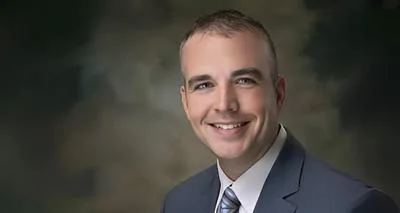Senator Eric Schmitt | U.S. Senator Eric Schmitt
Senator Eric Schmitt | U.S. Senator Eric Schmitt
Earlier today, Senator Eric Schmitt hosted a roundtable with industry leaders in geospatial technologies and unveiled his plan to attract more talent to St. Louis and transform the city into the geospatial hub of the country.
“Geospatial technologies are so critical to many different industries, both civilian and military. Its applications to defense technologies, GPS mapping, and many other uses can’t be overstated. St. Louis already has the National Geospatial-Intelligence Agency, which is building a new campus and working to revitalize a St. Louis neighborhood, private investment through the Taylor Geospatial Institute, and other private and public geospatial assets. There’s no reason to believe that St. Louis can’t become the geospatial hub of the country, and I’m working to accomplish that exact goal,” said Senator Schmitt.
The geospatial roundtable included representatives from various companies, universities, and governmental agencies such as Arch Grants; BAE Systems/GXP; Boeing Intelligence & Analytics; Chameleon Integrated Services; Enabled Intelligence; ESRI; Gateway Global; GEO261; Greater St. Louis Inc.; Leidos; NGA; Object Computing Inc.; Office of MO Military Advocate; Omni Federal Post Building; Reinventing Geospatial, Inc.; S2 Analytical Solutions; Scale AI; Starwood Group/Post Building; Taylor Geospatial Institute; T-Kartor USA; T-Rex UMSL USGIF Washington University Westway Enterprises.
At the roundtable, Senator Schmitt announced the National Geospatial Innovation Hub Advancement Act. This act would be administered through NGA West and aims to develop a skilled geospatial workforce for both public and private sectors over five years. The Taylor Geospatial Institute along with other research universities in St. Louis would receive funding for workforce development.
The committee-passed Defense Appropriations bill includes $5 million for this act through normal appropriations processes. Additionally, an amendment in the committee-passed version of the NDAA would create a geospatial hub in St. Louis.
Goals of the Act include expanding education, training, certification of a geospatial workforce, supporting global research hubs for geospatial science and technology, fostering partnerships with educational institutions and industry leaders for workforce development, increasing employment opportunities near National Geospatial-Intelligence Agency locations in the U.S., and supporting Department of Defense operations with skilled personnel.
Implementation involves collaboration between DOD and higher education institutions to develop curriculum tailored to geospatial technology skills while engaging with industry stakeholders to ensure training meets current needs.
NGA scientists use imagery and information to describe physical features on Earth by hiring individuals skilled in areas like geodesy/geophysics, photogrammetry, remote sensing cartographic science GIS/geospatial analysis—fields also integral to commercial sectors but constantly evolving alongside university programs providing foundational knowledge.
For images from today's event: [Link](https://senate-eric-schmitt.box.com/s/oqhqn6rsopov6vpq6qwjn0oa1h6kwn36).





 Alerts Sign-up
Alerts Sign-up